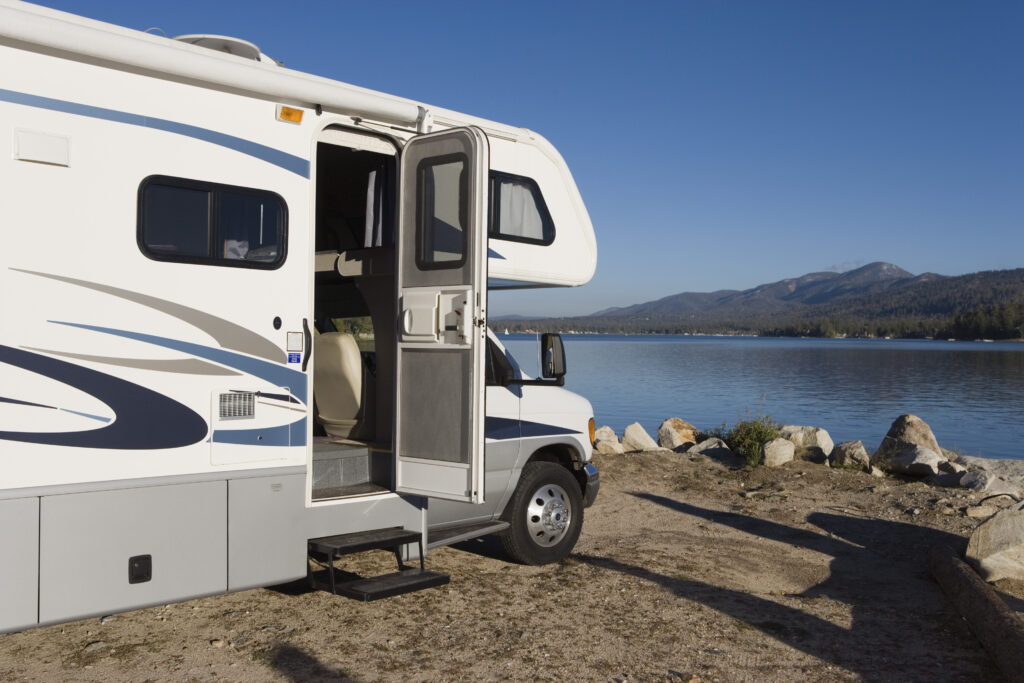
Do you track your spending and use a budget? Whether preparing to RV or already traveling on the road, a budget is a useful tool. It will help you decide if RVing is feasible and also help you stick to your spending plan while traveling.
Before RVing
Can you afford to full-time RV or even a snowbird? Completing an RVing budget, while not exact, will help you make realistic choices. If you do not have an RV yet, you can get a rough estimate of fuel by using 6 mpg for motorhomes; up to 10 for a diesel motor. The main insurance companies that provide insurance for full-time RVers will give you instant quotes or an overnight quote on their Web site to use as a ballpark figure. And you can use camping directories to get a rough idea of campground costs. It seems like campgrounds are charging an average of $25-30 a night, though you can certainly pay more. You can also use discounts and membership camping to decrease your costs.
The domicile you choose will also impact your budget. Your domicile is your tax home. If you travel full-time, you can choose a domicile more to your advantage. Taxes, insurance, and vehicle registration can vary immensely from state to state so this is an important decision.
On the road
RVers are fortunate that they can much more easily adjust their budget than can stick ‘n brick dwellers. Here are a few examples:
Housing or RV park costs: If you find yourself spending too much, you can stay in less expensive RV parks and stay in a water/electric site rather than one with full hookups. You can park overnight in a Wal-Mart parking lot where allowed. Boondocking (camping without hookups) on public lands or rest areas, where allowed, can be free. Many RV parks offer discounts for long-term stays. Stay for a week or month in one location and not only do you get a discount but you save on fuel costs too.
Propane: Adding a more efficient catalytic or ceramic heater to your RV and using that instead of the installed heater saves on propane costs.
Food: Food costs can be controlled by eating out less frequently and in your food choices.
Other purchases: Purchases are usually fewer because of space considerations. Some RVers stop exchanging gifts with family members or reduce what they spend. Unique items from your travels make nice gifts that don’t have to cost much. Or, the family may appreciate frequent postcards or phone calls instead of gifts. With a more casual lifestyle, jeans/shorts and t-shirts are suitable for most occasions.
Prepare for emergencies inevitably there are repairs and other emergencies that take a chunk out of the budget. If possible, have a rainy day fund or spend a little less than the allotted amount and put that aside.
A roadside assistance program comes with a monthly fee, but it more than pays for itself if you need to be towed or a tire changed when far from civilization. Read the fine print to make sure it covers such eventualities.
Set aside money for rig replacement too or for when you can no longer travel.
Control spending
Develop a method for tracking spending. A spreadsheet on your computer is a good way to keep track of and analyze your data. You can set up your spreadsheet by category and then sort to get totals for each one.
Tracking your spending will bring some insights. We don’t think of the little amounts like stamps and laundry and Starbucks. For example, when you see your cell phone and Internet access totals each month, it may prompt you to see if you can reduce that expense – or not. Since spending is all about choices, you can see if your spending is matching your values. Keeping in touch, for example, may be high on your list of priorities while eating out could be low. You can more easily make adjustments when you know where the money is currently going.
One method that has worked for me to stay within spending limits in each category is the envelope method.
